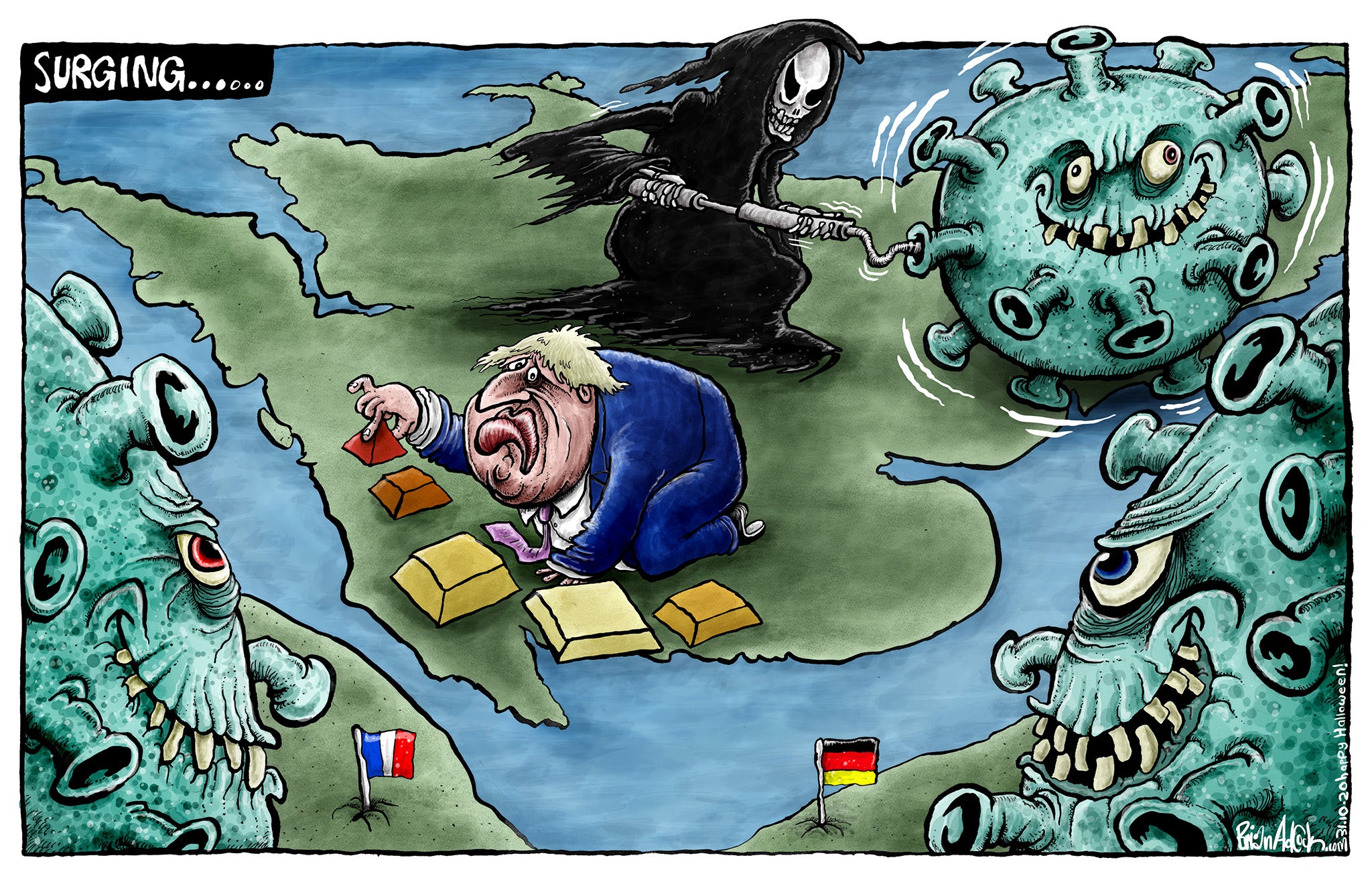The government is pursuing a policy of lockdown by stealth – we need to act decisively
Editorial: Sage warns that the number of deaths could surpass the 85,000 mark predicted by government modelling. The sooner we lock down, the sooner the country might suppress the virus

Is Britain making the same mistakes it did in the spring? By common consent, the imposition of the first national lockdown in March was late in coming, with vital days lost as ministers argued among themselves and tried, in vain, to avoid the damage to the economy that would inevitably result.
But the need for action is now greater than ever. Newly released documents from the Scientific Advisory Group for Emergencies (Sage) warns that the number of deaths could surpass the 85,000 deaths previously predicted by government modelling. Members of Sage have also warned that a “circuit breaker” will now be unlikely to bring the rate of transmission of the virus down sufficiently to stop the spread.
And yet the government is sticking to its line that “nothing is ruled out”. That is usually code for an approaching change in policy. Indeed, reports suggest the government is contemplating the implementation of a national lockdown next week.
This is welcome news - reports from Manchester are that hospitals are running out of capacity. The Nightingale units may soon need to be up and running, or else patients moved to other parts of the country where the pressures, so far, are relatively light, such as Norfolk or Cornwall.
Lessons have not been learned, then, or at least not implemented. There are reasons for that, aside from incompetence. One major constraint now that was not present in the spring is the formation of a “lockdown sceptic” group of Conservative MPs who believe the lockdown treatment is worse than the disease, and besides, they argue, it won’t work as people grow tired of the loneliness of it all.
Boris Johnson may enjoy a nominal Commons majority of 85, but he has enough malcontents in his backbenchers to wipe that out in an evening. Mr Johnson would then be humiliated into having to rely on Keir Starmer and the opposition parties to get his new national lockdown passed by parliament. It would also, as a preferably UK-wide approach, require the consent of the devolved administrations and the support of city mayors. Mr Johnson would be seen to be as weak politically as he actually is.
That is a fate he would prefer to avoid, hence the delay. Yet that delay is not like another postponement of the end of the Brexit transition period (incidentally, also an inevitable consequence of current events); it will cost lives unnecessarily, and at a time when the deadly dynamics of this epidemic are far better understood than they were nine months ago.
Instead of an immediate compromise with reality and a national tier 3 regime, the government is following a policy of creeping restrictions, of lockdown by stealth. City by city, town by town, county by county, England is gradually closing down. When does a near total coverage of the nation in tier 2 and tier 3 (and tier 4 in Scotland) “local” and regional lockdowns actually amount to a de facto national lockdown? Soon, is the answer to that, and the sooner Britain gets on with it the sooner the country might suppress the virus to a safer level and the NHS be kept out of meltdown.
It should be added that it would also buy another slug of time during which a test and trace system can be delivered, but no one believes that’s going to happen, so a third lockdown might in due course be required, depending on what happens with the vaccine. Meanwhile, a digital, virtual and, frankly, unreal Christmas is coming.


Join our commenting forum
Join thought-provoking conversations, follow other Independent readers and see their replies
Comments